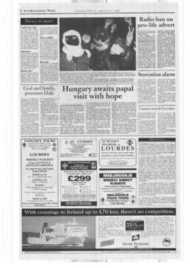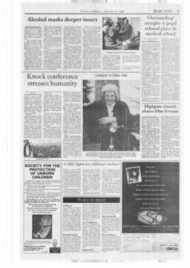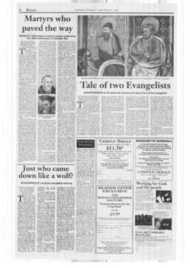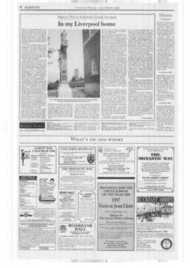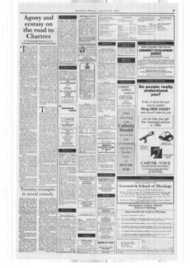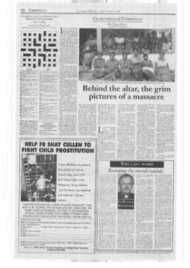Page 9, 23rd August 1996
Page 9

Report an error
Noticed an error on this page?If you've noticed an error in this article please click here to report it.
Tags
Share
Related articles
Television Am) Radio
Theatre
By Eric Fletcher, Ll.d., M.p. '
The Best Of Two Worlds
Experiment For The Tv Drama
Priestley triumphs in moral comedy
THERE APPEARS to be a dearth of new playwrights, and although television provides some opportunities for new actors to emerge, neither are in abundance. The rapid death of the repertory theatres is probably to blame. It was the training ground for both new playwrights and actors.
So now we have to rely more and more on revivals, which come in cycles. The Shaw and Wilde plays have had a great innings in recent years. Then came Ratigan. Now the latest arrival is JB Priestley. Some 50 years after its original production, An Inspector Calls enjoys success in the West End of London.
It is now followed at the Chichester Festival Theatre by Priestley's When We Are Married.
It is strange to recall that an eminent theatre critic once wrote: "Priestley still has to write the outstanding play." The statement must have predated the many successes he subsequently had, including When We Are Married. The present Chichester play is simply good entertainment and as such has survived for nearly 60 years, without any of the spiritual overtones of such plays as Dangerous Corner or Desert Highway. It does, however, tiptoe with great comedic skill into the implications of what makes a good marriage.
Priestley's pawky Yorkshire humour does not fail him when three burgesses of a Northern town and their wives discover there was a slip-up at the weddings and that these pillars of the establishment may not have been married after all, despite their looming silver jubilees.
The play is brilliantly interpreted by a dozenstrong cast who all deserve mention. We give the names of Dawn French and Leo McKern not just for their excellence but to indicate the range of talents at play here. The play is worth a journey, but judging from audience reaction, it is sure to find its way to London.
Jonathan Kemp
blog comments powered by Disqus



